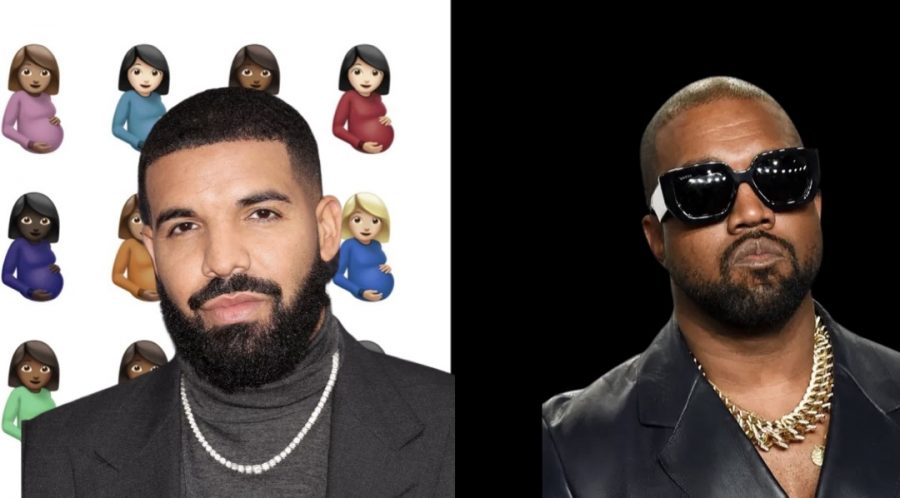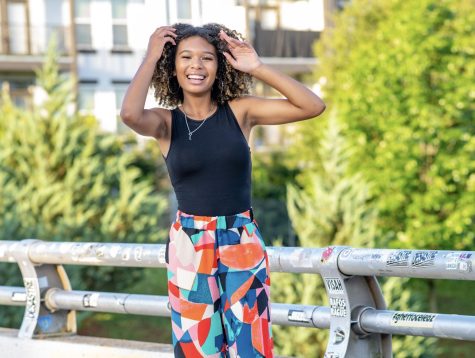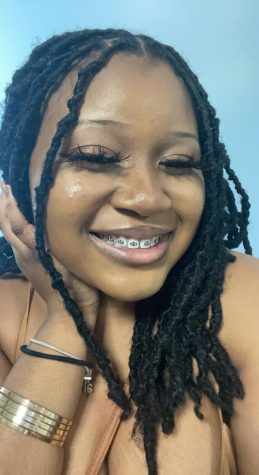Battle between GOATs
Harmony Gerber and Rodrigo Ferrari
Understanding Drake and Kanye West’s feud leads into a complicated hole of rivalry, deception, pettiness and mental illness; all stemming mostly from the latter. However, the recent controversy from West, mainly from him releasing Drake’s address through an instagram post, has heads turning. The leak potentially put Drake and his three-year-old son, Adonis, at risk and in harm’s way. Regardless, the question remains of whether this could deter audiences from listening to, let alone enjoying, Kanye’s music. The profitability of his future endeavors remains unknown, and the larger question of where the path of no return for separating the art from the artist begins.
September 22, 2021
The competitiveness of the music industry sometimes promotes toxicity, especially now more than ever. Since artists feel the need to prove their talent and ability, they tend to violate others’ boundaries for heightened attention. This principle applies to the tension that occurred between Kanye West’s new album, “Donda”, and Drake’s new album, “Certified Lover Boy (CLB)”. The competition between the two artists turned friendly competitors into feuding rivals.
The music world anticipated West’s album to drop at the beginning of August, but West ended up releasing the album on August 29, with prior knowledge of Drake’s album coming out later in the week. Drake and Kanye featured similar artists on their highly anticipated albums, such as Jay-Z, Lil Baby, Travis Scott and Lil Durk. Although these inclusions seem like a minor jab, West solicits numerous malicious acts; including leaking Drake’s home address on Instagram, using singer Bri Babineaux’s voice for an adlib without her consent, and excluding singer-songwriter Chris Brown’s verse from a song in the album.
Separating the artist from the music based on how they exhibit themselves as a person, not necessarily their talent, became a way that people interact with their favorite artists. The practice expanded after the development of cancel culture, with celebrities such as R Kelly, Bill Cosby and Michel Jackson’s controversies coming to light. On the other hand, certain people believe that artists should not receive positive recognition if they possess a negative contribution to the world.
“I believe that the artist should be separated from their art. What’s going on in their personal lives doesn’t affect what goes down in the studio,” NC junior Alison Castaneda said.
A delicate line separates the basic level and the point of no return when it comes to isolating an artist. While competition between the two remains fierce, the styles of rap execute differently. Donda exhibits Christian values and can easily fit under a gospel rap genre, while CLB displays a style typical of the hip-hop rap genre, with lyrics describing pop culture and its values.
“Look at me,
Take a real good look at me,
Don’t turn away,
Don’t you turn away like I did my son.
Look me in the eyes, junior,
I’m making no more promises.
For real,
I’m trying to find the word to say,” (Papi’s Home).
According to the Spotify top album charts, Donda ranks tenth place, far behind CLB’s number one spot. Several Kanye fans call Drake a “radio puppet,” meaning someone promoted and financially supported by the radio/billboard charts industry. The idea was mainly formed because of his high ranking on Spotify. Regardless, the public, particularly NC students, established their opinion.
“CLB [is better]; no hate to Kanye, but the lyrics were catchier to me and the album had more of a vibe. You can honestly tell that Drake put his all into it,” NC junior Belcy Emerson said.
Regardless if one believes CLB brings more to the table, according to the top Billboard 100, Drake’s album even three weeks later still occupies six spots in the charts, creating history, for no other artist has done that before. Overall, the data of the charts and the overwhelming opinion of NC’s student body make it evident which album truly came out on top.








